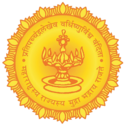Address by Governor at the Golden Jubilee Celebrations of Inclusion of Sindhi language in the Eighth Schedule of the Indian Constitution
Address by Shri CH. Vidyasagar Rao, Governor of Maharashtra at the Golden Jubilee Celebrations of Inclusion of Sindhi language in the Eighth Schedule of the Indian Constitution at Jal Vihar, Raj Bhavan, Mumbai at 5.30 pm on Saturday 3 June 2017
Padma Vibhushan Shri Lal Krishna Advani, former Deputy Prime Minister of India, Shri Vinod Tawde, Hon’ble Minister for Higher & Technical Education, Government of Maharashtra, Dr Nirmal Wadhwani, Minister from Gujarat, Shri Ashish Shelar, Hon’ble Member of Maharashtra Legislative Assembly, Shri Ashok Rohani, MLA, Shri Gyandeo Ahuja, MLA, Alwar, Shri Ravi Kumar, Vishwa Vibhag Pramukh, RSS, Smt Aruna Jethwani, Vice Chairperson, National Council for Promotion of Sindhi Language, Dr Ravi Tekchandani, Director of National Council for Promotion of Sindhi Language, Shri Ajit Manyal, Convenor, distinguished invitees, ladies and gentlemen,
Good evening and Namaskar.
I extend a warm welcome to each one of you to Raj Bhavan.
I extend my special and personal welcome to our beloved leader, former Deputy Prime Minister of India – with whom I had the privilege of working as Minister of State in the Home Ministry, Shri Lal Krishna Advani Ji.
At the outset I would like to compliment the National Council for Promotion of Sindhi Language for organizing this function to commemorate the Golden Jubilee of the inclusion of Sindhi language in the Eight Schedule of the Constitition of India.
There was Maharashtra connection to the introdcution of the Bill in Parliament in the year 1967. The then Minister of Home Affairs Yashwantrao Chavan, who was Maharashtra’s first chief Minister after the formation of the State, had introduced the Bill in the Rajya Sabha.
The Bill was passed and eventually, Sindhi language was included in the Eight Schedule of the Constitution after President Dr Zakir Hussain gave his assent to the Twenty First Amendment Bill on 10th April 1967. The year 2017 is therefore the 50th year to the historic occasion, and I rejoice it with all members of the Sindhi community.
So far 22 languages have been included in the Eighth Schedule. However it is not enough to get the language included in the Eighth Schedule. Efforts are needed from all sections of society for preservation of language.
Ladies and gentlemen,
In the history of human civilization, few communities have suffered such trauma and pain as the Sindhis did, in the aftermath of the Partition of India.
For no fault of theirs, the most progresive and the most peaceful Sindhis were forced to abandon their home and hearth, and had to come to this part of India literally empty-handed. It was the good fortune of Maharashtra that many members of the Sindhi community settled in, and around Mumbai and in other parts of Maharashtra.
To their supreme credit, the Sindhis not only picked up their lost threads, but on the sheer strength of hard work and determination, transformed themselves into one of the most successful communities perhaps anywhere in the world.
The Sindhis settled in different parts of India and wherever they went, assimilated with the local population and cultures, while also preserving their own identities and unique culture.
I have great admiration for the Sindhis for their spirit of enterprise. I consider Sindhis as pioneers of the Start Up revolution that we are talking today. They challenged the destiny and defined their own course through enterprise and hard work. Today the Sindhis are job givers, not job seekers.
Ladies and gentlemen,
Acharya Kripalani had made two pertinent observations about the Sindhis. He noted the fact that the Sindhis made good progress without any help from the Government. Secondly, he noted that no Sindhi after partition ever begged, he earned an honest living. That’s truly remarkable.
During the last seventy years since Independence, the Sindhis have made spectacular contribution to the socio-economic progress and development of India, development of Maharashtra and development of Mumbai.
Speaking for Mumbai, I will say, the socio- economic history of Mumbai, after 1947, would be incomplete without glorious references to the multifaceted contributions of the Sindhi community.
The Sindhi community has given the nation some of the most prominent politicians like Jairamdas Daulatram, Acharya J B Kripalani, Sucheta Kripalani, Lal Krishna Advani, K R Malkani, Hashu Advani and so on. It has also given the nation great personalities like Sadhu Vaswani, Dada Vaswani, Barrister Ram Jethmalani and many others. I can take many names and dwell on their contributions, but it will take much time. Today, unfortunately, the number of Sindhis in our Parliament and legislatures is declining, and this trend must be reversed. Unless the Sindhis have political representation, their voice will not be heard.
Ladies and gentlemen,
The Sindhi community has scattered all over the world. Today Sindhis have become global citizens. However, this has created a new challenge. Preserving ‘Sindhiyat’ the rich culture, traditions and most importantly the Sindhi language has become a challenge for all of us. We need the support of every member to preserve Sindhiyat.
A lot will have to be done to promote and popularize the Sindhi language, particularly among the young generation. We will have to make efforts to promote Sindhi among Non Sindhi students also. If required we should offer scholarships to students pursuing studies in Sindhi language and culture.
Today it is not just Sindhi language, all regional languages are under threat because of the growing use of English language.
We will have to think how technology can help us to reach out to the new generation and promote Sindhi and other regional languages and literature.
As we rejoice the occasion of Golden Jubilee of inclusion of Sindhi language, let us all take pleadge to preserve and promote our own language. I wish the National Council for Promotion of Sindhi Language all success in its endeavours.
Thank you
Jai Hind Jai Maharashtra



